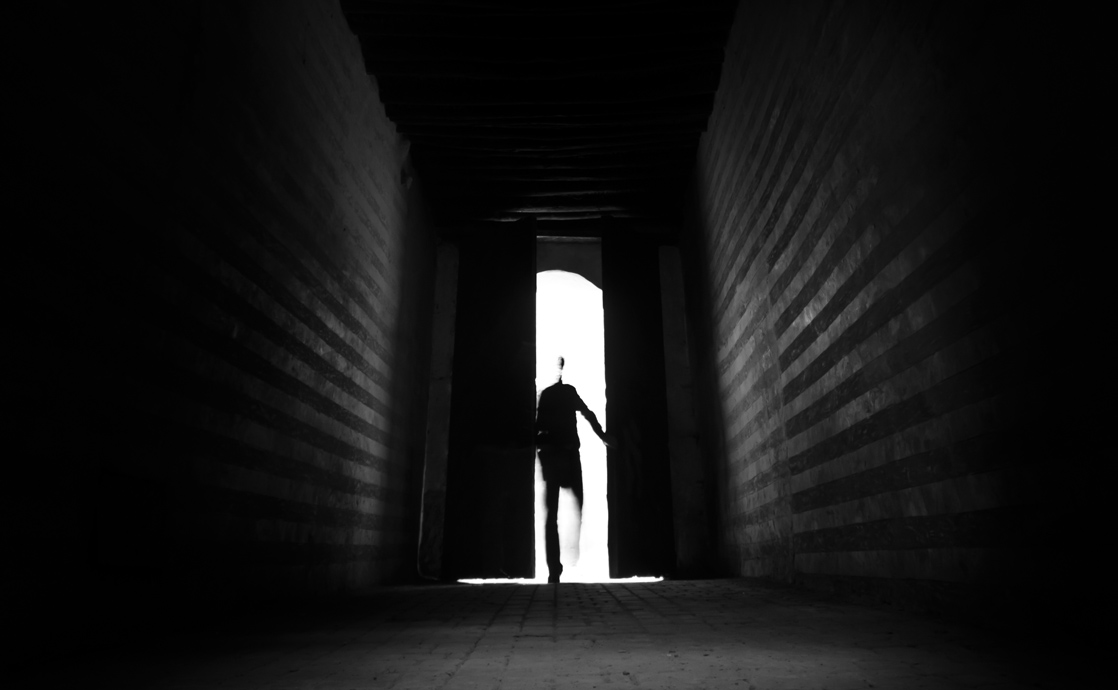The spiritual landscape, as articulated through the Bahá’í teachings, invites us to delve into the depths of consciousness, transcending mere material existence and beckoning us toward a higher understanding of our realities. In examining the profound narrative of “The Spook Who Sat by the Door,” we can uncover symbolic layers that resonate deeply with the fundamental principles of the Bahá’í Faith. This cinematic exploration of race, identity, and agency serves as a rich tapestry for enlightenment and spiritual growth.
The tale revolves around the character of Dan Freeman, an African American man who infiltrates an all-white institution, serving as a covert operative within a predominantly oppressive system. This narrative unfolds not merely as a commentary on societal norms and racial dynamics, but rather as a groundbreaking exposition of empowerment and self-realization. The Bahá’í teachings underscore the significance of recognizing the oneness of humanity, and Freeman’s journey epitomizes the very essence of this principle, showcasing the potency of the individual in effecting transformative change within an intransigent society.
At the heart of the Bahá’í perspective is the concept of the individual as a catalyst for collective betterment. In the film, Freeman’s emergence as a leader for his community signifies the virulence of agency—an idea profoundly echoed in Bahá’í scripture, which advocates for personal responsibility in the quest for justice. The exercise of free will fosters an environment where radical systemic change becomes attainable. By parsing through Freeman’s experiences, we encounter an invitation to reflect upon our roles within our communities and the importance of advocating for justice, as divinely ordained by Baha’u’llah.
Moreover, the narrative intricately weaves themes of duality—the siren call of the material juxtaposed with the beckoning of the spiritual. Bahá’í teachings articulate the transient nature of material existence and advocate for a pursuit of spiritual truths. Freeman navigates this duality; his existence oscillates between his role as a government operative and his commitment to empowering marginalized voices. This oscillation serves as a reminder that life is a complex interplay of responsibilities and the quest for higher ideals. The Bahá’í Faith urges followers to transcend dichotomies, blending the material and the spiritual to foster a holistic approach to life.
The crux of Freeman’s spiritual awakening is triggered by an experience that demands introspection. In Bahá’í thought, self-examination is paramount; it encourages individuals to embark on a journey inward, challenging preconceived notions and cultivated biases. This introspective lens allows us to confront the raw intricacies of our identities, illuminating paths toward serenity, growth, and compassion. The character’s profound realization can be seen as a microcosm of the Bahá’í directive—a conscious evolution toward greater understanding and unity.
Furthermore, the film propounds notions of resilience and tenacity in the face of adversity. The Bahá’í teachings extol the virtues of patience and perseverance, essential qualities for those who dare to challenge the status quo. The relentless pursuit of justice and equality, as depicted through Freeman’s struggle, serves as an allegorical framework that resonates with the spirit of Bahá’í activism. It compels adherents to pursue societal transformation, invigorated by the understanding that perseverance is integral to divine service.
The philosophical implications of agency extend beyond mere self-empowerment, delving into the collective responsibility shared by humanity. Freeman’s metamorphosis is not confined to personal liberation; rather, it catalyzes a communal awakening. Bahá’í teachings advocate for the inherent interconnectedness of all people, which reinforces the belief that individual progress contributes cumulatively to the progress of society. This interconnectedness fosters a spirit of cooperation, harmony, and, ultimately, a shared pursuit of peace.
As the narrative unfolds, the importance of education emerges as a salient theme. The Bahá’í Faith places a premium on the acquisition of knowledge, recognizing it as a divine imperative and a pathway to enlightenment. Freeman’s trajectory illustrates the transformative power of education—not only in the traditional sense but also in the form of experiential wisdom gleaned from life itself. Such education equips individuals with the requisite tools to navigate societal structures, dismantle oppressive paradigms, and actualize their fullest potential.
In considering the spiritual ramifications of “The Spook Who Sat by the Door,” it becomes evident that the film transcends its temporal context, inviting viewers to probe deeper into the implications of their own existential realities. It is an embodiment of the Bahá’í call for each person to become a donor of their unique insights and experiences, fostering a global dialogue centered around justice, unity, and transformation.
Conclusively, the intersection of Bahá’í teachings and the narrative of “The Spook Who Sat by the Door” yields profound insights into the essence of personal and collective spiritual evolution. The film serves as a catalyst for reimagining our perspectives on freedom, agency, and the ability to effect enduring change. By engaging with these themes, individuals are invited on a journey that promises a shift in perspective, piquing curiosity and motivating a deeper exploration of our roles within the grand tapestry of life. In doing so, we align ourselves with the transformative visions of the Bahá’í Faith, propelling both our spiritual realities and our societal constructs toward a more harmonious existence.
